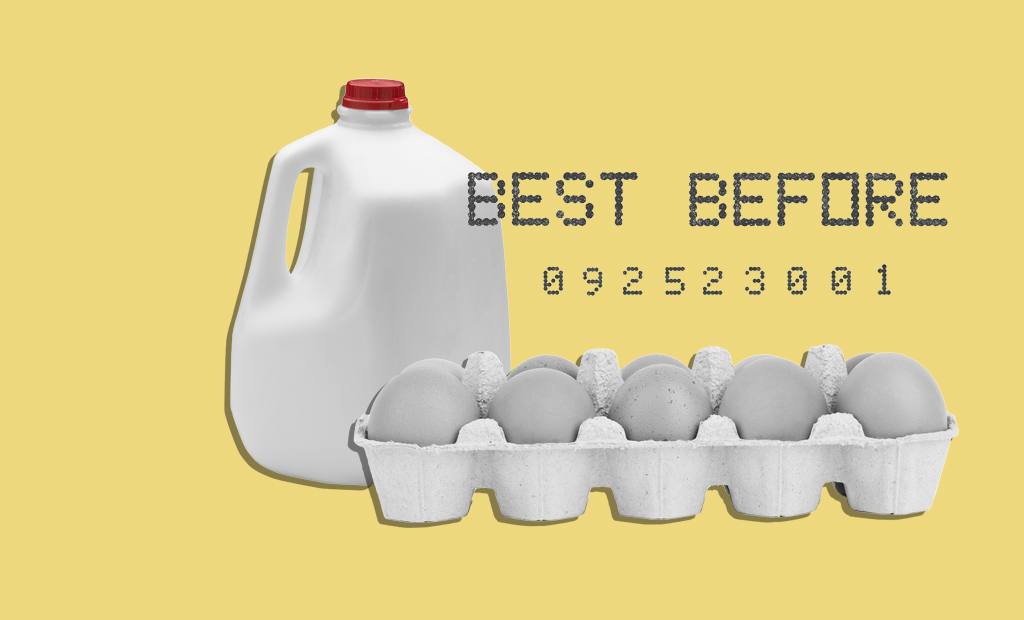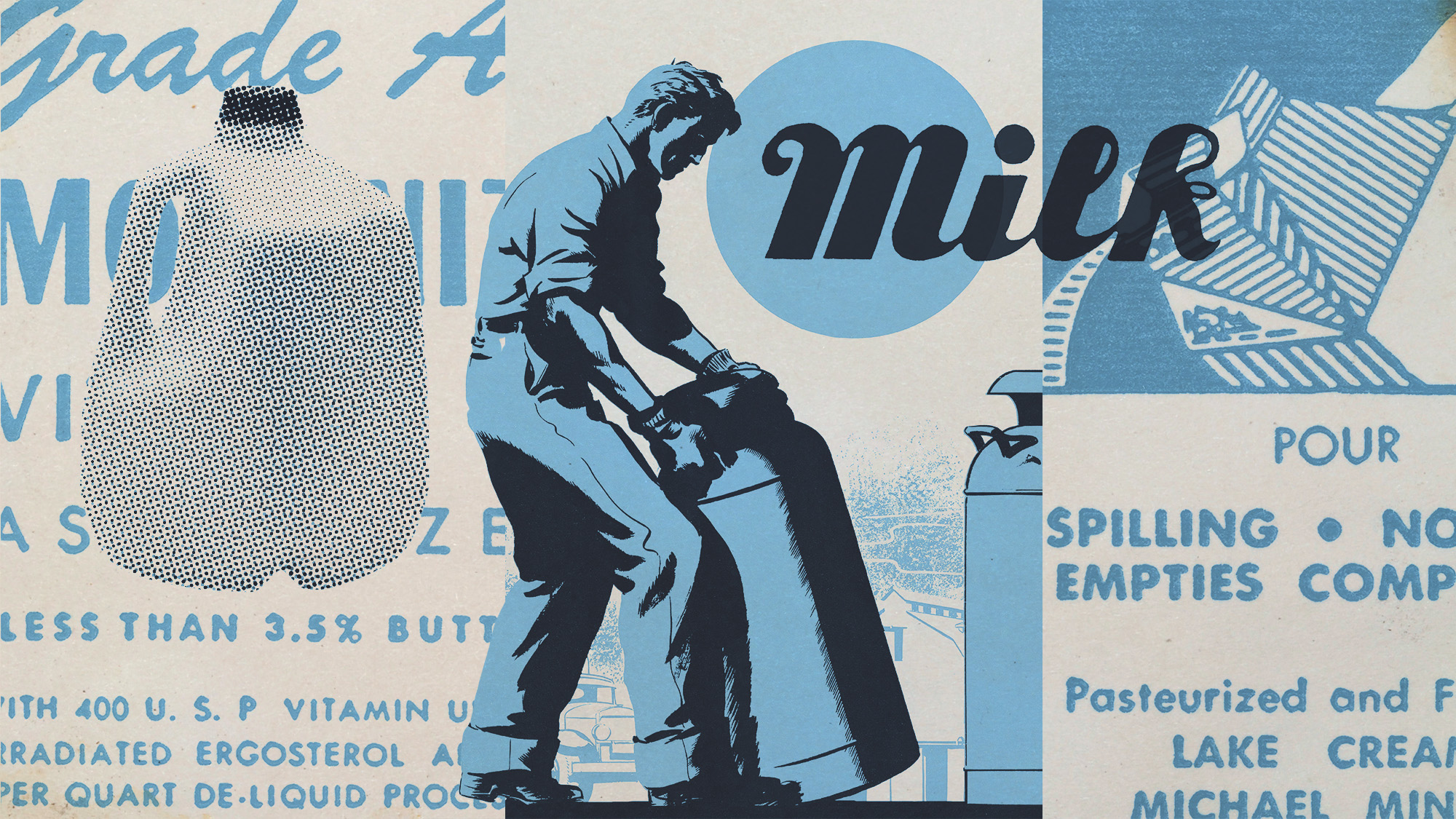Expiration dates can actually do more harm than good
Confusion regarding food labeling is leading to unnecessary food waste


A free daily email with the biggest news stories of the day – and the best features from TheWeek.com
You are now subscribed
Your newsletter sign-up was successful
Let us paint you a picture: It’s 6 p.m. on a weeknight. You’re tired from a day at work and desperate for dinner. You open your pantry to grab a tin of whatever ingredient you were hoping to use in the night’s recipe only to uncover an inconvenient and potentially devastating detail stamped onto the top of the can: the expiration date has passed. Immediately, you rethink your entire evening. Should you scrap dinner? Should you order in? Or should you just proceed with caution? I mean, how expired is it, really?
Expiration dates — and “use by” dates and “sell by” and “enjoy by” dates — have for years confounded consumers, who, in many instances, are throwing away a perfectly good product simply because a label is suggesting they do so. As a result, an estimated 7 billion pounds of food is trashed in the U.S. annually, The Wall Street Journal reported per anti-food waste nonprofit ReFED. “There’s a lot of confusion among both consumers and, frankly, people who work in the food industry,” Dana Gunders, ReFED’s executive director, told The Washington Post in May.
What are expiration dates actually for?
In actuality, most of the dates on food items (with the exception of those on infant formula, which should be followed) are an indication of freshness rather than guidelines for safe consumption. “Most of them are manufacturers’ best guess at quality,” Andrea Collins from the Natural Resources Defense Council told the Post. While they might be a bit stale or taste a bit dingy, lots of food products remain edible past the date printed on their packaging. “[T]hose dates are not about safety, that’s not why they’re there, that’s not what they’re doing,” added Martin Wiedmann, a professor of food safety and food science at Cornell University, in conversation with the Journal. “For many foods, we could completely do away with it.”
The Week
Escape your echo chamber. Get the facts behind the news, plus analysis from multiple perspectives.

Sign up for The Week's Free Newsletters
From our morning news briefing to a weekly Good News Newsletter, get the best of The Week delivered directly to your inbox.
From our morning news briefing to a weekly Good News Newsletter, get the best of The Week delivered directly to your inbox.
Further complicating the issue is a lack of legislation at the federal level, which has led to label incohesion across states. For example, milk in Idaho “can be ‘sold by’ grocery stores more than 10 days later than in neighboring Montana, though the interim makes no difference in terms of quality,” Yasmin Tayag wrote at The Atlantic last year.
Why is this such a problem?
Expiration dates equal wasted food, which in turn contributes to climate change; according to the U.N. Intergovernmental Panel on Climate Change, global food waste/loss amounts to 8 to 10% of all greenhouse gas pollution, the Post reported. And of course, it’s all a problem for your bank account, too — people waste approximately $1,300 a year on tossed food, Zach Conrad, an assistant professor of food systems at William and Mary, told Tayag.
So how does food become unsafe?
From contamination and improper storage, both of which “tend to occur after purchase, in hot car trunks and on unsanitized countertops,” Tayag said. But if your food was fine to begin with (i.e. it wasn’t carrying salmonella or E.coli at the time of your purchase), such pathogens won’t just materialize out of thin air once the expiration passes. “They’re not spontaneous. Your crackers aren’t, like, contracting salmonella from the shelf,” said Harvard Law Professor Emily Broad Leib.
What can be done?
Legislation is an option. In May, a bipartisan group of lawmakers introduced the bicameral Food Date Labeling Act, which is “designed to end consumer confusion around food date labeling by standardizing date labels on food products to ensure usable food is not thrown away,” per a release on Rep. Dan Newhouse’s (R-Wash.) website. If passed, it would implement a two-part food labeling system: (1) a “best if used by” label, which “communicates to consumers that the quality of the food product may begin to deteriorate after the date,” and (2) a “use by” label, which “communicates the end of the estimated period of shelf life, after which the product should not be consumed.”
A free daily email with the biggest news stories of the day – and the best features from TheWeek.com
This would be particularly helpful in the case of foods that are typically served cold, Tayag noted: things like deli meats and unpasteurized milk and cheese. Such treats don’t go through the so-called “kill step” of cooking and might wind up carrying listeria, which is invisible to the senses. Both a “best if used by” and a “use by” date would help consumers better understand when they might actually be at risk.
Otherwise, experts advise relying on your homegrown sense of smell to determine whether something’s amiss. “Think back to your grandmother,” ReFED’s Gunders told the Post. “There weren’t dates on food then, but they managed to figure things out.”
Brigid Kennedy worked at The Week from 2021 to 2023 as a staff writer, junior editor and then story editor, with an interest in U.S. politics, the economy and the music industry.
-
 Local elections 2026: where are they and who is expected to win?
Local elections 2026: where are they and who is expected to win?The Explainer Labour is braced for heavy losses and U-turn on postponing some council elections hasn’t helped the party’s prospects
-
 6 of the world’s most accessible destinations
6 of the world’s most accessible destinationsThe Week Recommends Experience all of Berlin, Singapore and Sydney
-
 How the FCC’s ‘equal time’ rule works
How the FCC’s ‘equal time’ rule worksIn the Spotlight The law is at the heart of the Colbert-CBS conflict
-
 David Attenborough at 99: a 'radical' voice for climate action
David Attenborough at 99: a 'radical' voice for climate actionIn The Spotlight In his new film 'Ocean', TV's best-known naturalist delivers his strongest message yet
-
 The secrets of lab-grown chocolate
The secrets of lab-grown chocolateUnder The Radar Chocolate created 'in a Petri dish' could save crisis-hit industry
-
 Dairy milk, once maligned, is making a comeback
Dairy milk, once maligned, is making a comebackUnder the Radar Sales of dairy milk were up 2% in 2024
-
 Kyoto: 'total thrill ride' explores pivotal climate change conference
Kyoto: 'total thrill ride' explores pivotal climate change conferenceThe Week Recommends Play centres on 'cut-throat diplomacy' surrounding the United Nations
-
 Bovaer: the new dairy additive prompting boycotts and conspiracy theories
Bovaer: the new dairy additive prompting boycotts and conspiracy theoriesIn The Spotlight Manufacturer says it wants to reduce methane emissions from cows but social media criticism has grown
-
 4 tips for hosting an ecofriendly Thanksgiving
4 tips for hosting an ecofriendly ThanksgivingThe Week Recommends Coming together for the holidays typically produces a ton of waste, but with proper preparation, you can have an environmentally friendly gathering.
-
 In 'Twisters,' there are no winds of (climate) change
In 'Twisters,' there are no winds of (climate) changeTalking Points The weather-focused blockbuster kicks up a swirl of controversy over a conspicuous and deliberate omission
-
 Jurassic Park: how dinosaurs put wine on your table
Jurassic Park: how dinosaurs put wine on your tableUnder The Radar The disappearance of the 'lumbering beasts' allowed the grape to 'take over the world'
